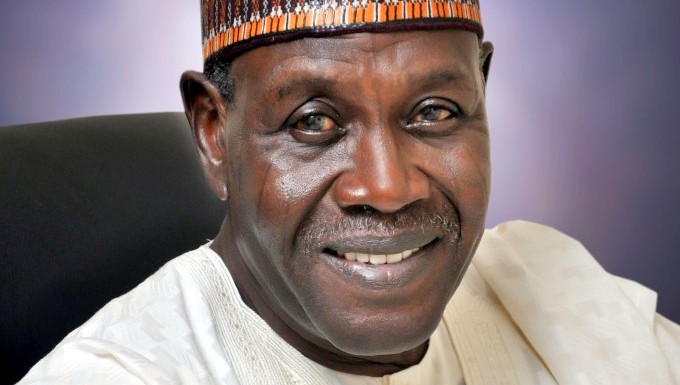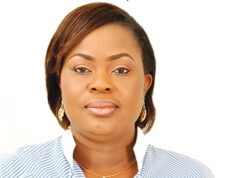With recent pronouncements of two personalities, Nigeria may hopefully be heading in the right direction, away from a toxic environment fouled by utterances and deeds of our leaders.
It’s refreshing to hear Ambassador Babagana Kingibe (GCON) and Governor Seyi Makinde of Oyo State “speak truth” to separate bases, one of which works for the other to grab political power.
While Kingibe talks to “power mongers” that have a mistaken notion of “Nigeria more united” than critics admit, Makinde addresses electoral manipulators or “political thugs” in whatever guise.
Both the diplomat and businessman-turned politicians spoke at separate events: Kingibe at The Sun Newspaper Awards for 2020, and Makinde at a marriage ceremony, respectively, in Lagos.
In remarks as he received a “Lifetime Achievement Award,” Kingibe queries the resonant “non-negotiability” of Nigeria’s unity, perhaps derived from expression of its “indivisibility and indissolubility” in sections 1 and 2 of the amended 1999 Constitution.
While section 1(1) is on the Constitution’s “supremacy and binding force” on all authorities and persons in Nigeria; and (2) is on governance in accordance with the Constitution; (3) voids any law that’s inconsistent with the provisions of the Constitution.
Section 2(1) proclaims: “Nigeria is one indivisible and indissoluble Sovereign State to be known by the name of the Federal Republic of Nigeria,” and (2) mandates that, “Nigeria shall be a Federation consisting of States and a Federal Capital Territory.”
But tackling the elite parroting, Kingibe, a member of the ruling class, and vice presidential candidate to the winner of the June 12, 1993, election, Chief Moshood Kashimawo Olawale Abiola (GCFR), declares there’s nothing non-negotiable in human relations.
Kingibe likens the relationships among peoples of a geographical space to those between a married couple, and appeals to those for and against Nigeria’s balkanisation to find a common ground for dialogue, as “we can all achieve our goals in Nigeria.”
He says: “I was born in Nigeria. I was groomed in Nigeria. I believe in Nigeria. People of my generation believe in Nigeria. We have no doubt about the fact that we have no option, but Nigeria.
“However, I think a few of my colleagues believe that the unity of Nigeria is not negotiable. Of course, it is negotiable. Even the unity of a family is negotiable. Even the constitution of husband and wife is negotiable.”
But were their dream to come true, Kingibe reminds separatist agitators: “It is not that you carve out the piece of land, take it up and put it in other side of Ghana. The piece of land will be here. You will be here. Everybody will be here. And we all want to prosper.”
The former diplomat adds: “My appeal to everyone is, please, let us be respectful of one another. Let us not demonise one another. Let us respect the views of everybody.”
Kingibe’s counsel comes as secession agitation heightens in the South, mainly in the South-East and South-West geopolitical zones, for a Republic of Biafra and an Oduduwa Republic, accordingly.
The arrowheads of the agitation, Nnamdi Kanu of the Indigenous People of Biafra (IPOB) and Sunday Adeyemo (Sunday Igboho), simply dubbed “Yoruba Nation agitator,” have run foul of the law, indicted and/or being tried for treasonable felony and terrorism.
While Kanu is in custody of the Department of State Services (DSS), from where he attends court sessions for his alleged offences, Adeyemo is in a Benin Republic prison, charged with contravening the country’s laws by entering with fake documents.
Kingibe, praising the publisher of Sun Newspapers and ex-governor of Abia State, Senator Orji Uzor Kalu, for creating a platform for dialogue, notes the remarks of two of the awardees from the South-East, who said they “believe in one Nigeria.”
“I presume, it is a reflection of the fact that they achieved whatever they did because they are Nigerians,” Kingibe says. “We can all achieve our goals in Nigeria. We are only part of a greater entity, be it ECOWAS… Wherever you go, you will remain a Nigerian, an ECOWAS citizen, an African citizen or a global citizen.
“So, please, let us mind our language as we address national issues. Whatever I achieved, I stood on the shoulders of great people, many of whom have deserted us, but without them, I cannot be what I am today,” Kingibe adds.
Coming to Governor Makinde’s advice to “people who want to die for politicians,” it’s a timely and cautionary reminder of what lies ahead of Nigeria and Nigerians in the 2023 general election.
Nigeria is a haven for election manipulators, with many engaging in thuggery: snatch or destroy ballot materials, alter poll results, and maim or kill real or perceived opponents – to advance their political paymasters’ grab of undeserved power by whatever means.
That makes Makinde’s pointed appeal to be comparable to the viral quote of former President Goodluck Jonathan that his aspiration for political office “is not worth the blood of any Nigerian.”
Makinde says: “Politics is not something that should cause anybody to lose his or her life. We are moving towards the electioneering period, and I just want to use this opportunity to appeal to you all.
“If you also look at this marriage, the bride and groom are from Christian and Muslim families. So, people, who also want to always fight on religious grounds, should have a rethink.”
A son of former Ekiti State governor and Peoples Democratic Party (PDP) chieftain, Ayodele Fayose, was wedding, and the political leanings and differences of some attendees – Governors Makinde (Oyo), Kayode Fayemi (Ekiti) and Nyesom Wike (Rivers), and former Governor Segun Oni (Ekiti) – reflect the import of Makinde’s plea.
That Fayemi, Oni and Makinde were, at different times, not the best of friends politically with Fayose, and yet converged to honour him on his son’s wedding is a lesson in “politics without bitterness.”
In 2003, Fayose beat first civilian Governor of Ekiti, and Minister of Industry, Trade and Investment, Otunba Adeniyi Adebayo (Alliance for Democracy (AD)); and in 2010, Fayemi (Action Congress (AC)), removed Chief Oni (PDP), who succeeded Fayose in 2007.
Fayose staged a comeback in 2014, displacing Fayemi (Action Congress of Nigeria (ACN)), who four years later, in 2018, on the platform of the All Progressives Congress (APC), defeated Fayose’s anointed successor, Prof. Kolapo Olushola (PDP).
(For several reasons, including impeachment and/or court-ordered removal due to alleged manipulated or inconclusive polls, there’re three Acting Governors and an Administrator in Ekiti, for a few weeks to a few months, between October 2006 and May 2009.)
But as Makinde notes and counsels political goons: “If you look at the former governors in Ekiti State – Segun Oni, Ayo Fayose and incumbent Kayode Fayemi – they have governed the state at one time or the other, but they were not in the same party. So, those of you, who want to die because of us politicians, be careful.”
Will “forced unity” mongers, and political thugs in high and low places take Kingibe and Makinde’s advice, and spare Nigeria a repeat of the untoward happenings that’ve defined its polity?
*Ezomon, a Journalist, writes from Lagos, Nigeria.
Twitter: @EhichioyaEzomon WhatsApp: 08033078357.
- PenCom recovers N1.58bn from defaulting employers, pension assets hit N23trn - April 23, 2025
- Kaduna vigorously pursuing youth empowerment — Dep Gov - April 23, 2025
- Hurricane Tinubu: Delta Gov, deputy, Okowa dump PDP for APC - April 23, 2025








